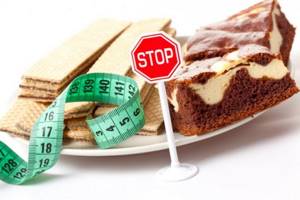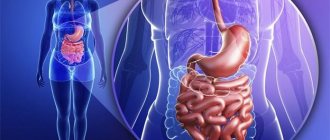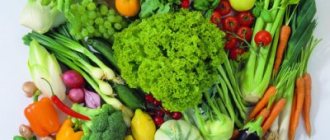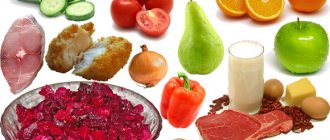8556
Eating twice a day is not acceptable for everyone; its idea is at odds with popular trends in dietetics, however, despite this, many modern weight loss diets are based on eating twice a day. Some of them suggest excluding dinner from the menu, others recommend giving up breakfast. The authors of these diets did not come up with their idea out of thin air.
Two meals a day has its justification; it has many adherents, including among famous personalities. Let's look at whether it is possible to lose weight if you eat 2 times a day, as well as all the pros and cons of this nutrition system.
Which diet is best?
If we remember our distant ancestors, then rare meals were more natural for them. Their life was spent in constant physical labor, and food for them was not pleasure, as for most modern people, but a means of satisfying hunger. It’s quite difficult to imagine a person from the past chewing something every 2-3 hours.
For many peoples, the main meal took place in the evening before going to bed, when the day's work was completed. It was believed that a full stomach was an obstacle to fruitful work, so during the day hunger was satisfied by drinking herbal teas or milk, and snacking on fruit.
From a physiological point of view, it was previously considered more correct to eat food only after a feeling of hunger arises. In this case, the gastrointestinal tract completely completes one digestion cycle and prepares to accept a new portion of food for processing.
The recommendations of modern nutritionists ignore the body's signals, because they prescribe eating every 2-3 hours, even before the feeling of hunger appears. This makes it easier to tolerate dietary restrictions when losing weight. However, according to some scientists, eating 5-6 times a day is contrary to physiology.
There is an opinion that eating 2 times a day is more consistent with the physiology of digestion, because it allows you to feel the feeling of hunger and then satisfy it. In addition, it is closer to the regime that our ancestors used for many centuries.
Authorized Products
Meals 2 times a day for weight loss include:
- Various types of sea and river fish, seafood.
- Red meat, sausages, smoked meats, rabbit and poultry.
- Bread, rye and whole grain bread made from durum flour.
- Soups made with vegetable, meat, fish and mushroom broths (cereal vegetable and mushroom soups, beetroot soup, cabbage soup, rassolnik, borscht) with the addition of sour cream and garden herbs.
- Dairy/fermented milk products and drinks (cottage cheese, milk cheese, sour cream, acidophilus, yogurt, curdled milk, kefir).
- Butter, unrefined cold-pressed vegetable oils (linseed, olive, sunflower).
- Whole grain porridge, pasta, and if well tolerated - legumes, soy.
- Chicken/quail eggs in any preparation.
- Various types of nuts, seeds, bee products, seaweed and other algae.
- Vegetables in various forms, garden herbs, spices and seasonings.
- Fresh fruits/berries in various forms (raw, heat-treated), freshly prepared juices and fruit drinks, compotes, jelly.
- Wheat bran decoction, green tea, rosehip infusion, herbal teas, mineral water, coffee, cocoa.
Table of permitted products
| Proteins, g | Fats, g | Carbohydrates, g | Calories, kcal | |
Vegetables and greens | ||||
| spicy vegetables | 2,8 | 0,5 | 5,3 | 36 |
| vegetables legumes | 9,1 | 1,6 | 27,0 | 168 |
| canned vegetables | 1,5 | 0,2 | 5,5 | 30 |
| swede | 1,2 | 0,1 | 7,7 | 37 |
| zucchini | 0,6 | 0,3 | 4,6 | 24 |
| cabbage | 1,8 | 0,1 | 4,7 | 27 |
| cauliflower | 2,5 | 0,3 | 5,4 | 30 |
| bulb onions | 1,4 | 0,0 | 10,4 | 41 |
| carrot | 1,3 | 0,1 | 6,9 | 32 |
| cucumbers | 0,8 | 0,1 | 2,8 | 15 |
| canned cucumbers | 2,8 | 0,0 | 1,3 | 16 |
| radish | 1,2 | 0,1 | 3,4 | 19 |
| white radish | 1,4 | 0,0 | 4,1 | 21 |
| turnip | 1,5 | 0,1 | 6,2 | 30 |
| beet | 1,5 | 0,1 | 8,8 | 40 |
| celery | 0,9 | 0,1 | 2,1 | 12 |
| canned tomatoes | 1,1 | 0,1 | 3,5 | 20 |
| pumpkin | 1,3 | 0,3 | 7,7 | 28 |
| horseradish | 3,2 | 0,4 | 10,5 | 56 |
| garlic | 6,5 | 0,5 | 29,9 | 143 |
Fruits | ||||
| apricots | 0,9 | 0,1 | 10,8 | 41 |
| oranges | 0,9 | 0,2 | 8,1 | 36 |
| watermelon | 0,6 | 0,1 | 5,8 | 25 |
| bananas | 1,5 | 0,2 | 21,8 | 95 |
| pears | 0,4 | 0,3 | 10,9 | 42 |
| melon | 0,6 | 0,3 | 7,4 | 33 |
| lime | 0,9 | 0,1 | 3,0 | 16 |
| lemons | 0,9 | 0,1 | 3,0 | 16 |
| tangerines | 0,8 | 0,2 | 7,5 | 33 |
| plums | 0,8 | 0,3 | 9,6 | 42 |
| apples | 0,4 | 0,4 | 9,8 | 47 |
Berries | ||||
| grape | 0,6 | 0,2 | 16,8 | 65 |
| strawberry | 0,8 | 0,4 | 7,5 | 41 |
| sea buckthorn | 1,2 | 5,4 | 5,7 | 82 |
| currant | 1,0 | 0,4 | 7,5 | 43 |
| rose hip | 1,6 | 0,0 | 14,0 | 51 |
Mushrooms | ||||
| mushrooms | 3,5 | 2,0 | 2,5 | 30 |
Nuts and dried fruits | ||||
| raisin | 2,9 | 0,6 | 66,0 | 264 |
| dates | 2,5 | 0,5 | 69,2 | 274 |
Cereals and porridges | ||||
| buckwheat (kernel) | 12,6 | 3,3 | 62,1 | 313 |
| cereals | 11,9 | 7,2 | 69,3 | 366 |
| corn grits | 8,3 | 1,2 | 75,0 | 337 |
| pearl barley | 9,3 | 1,1 | 73,7 | 320 |
| millet cereal | 11,5 | 3,3 | 69,3 | 348 |
| white rice | 6,7 | 0,7 | 78,9 | 344 |
| barley grits | 10,4 | 1,3 | 66,3 | 324 |
Bakery products | ||||
| bagels | 16,0 | 1,0 | 70,0 | 336 |
| buns | 7,2 | 6,2 | 51,0 | 317 |
| butter horns | 8,3 | 12,1 | 50,5 | 345 |
| drying poppy seeds | 11,3 | 4,4 | 70,5 | 372 |
| wheat bread | 8,1 | 1,0 | 48,8 | 242 |
| rye-wheat bread | 8,1 | 3,4 | 42,2 | 222 |
| Rye bread | 6,6 | 1,2 | 34,2 | 165 |
Confectionery | ||||
| jam | 0,3 | 0,2 | 63,0 | 263 |
| jam | 0,3 | 0,1 | 56,0 | 238 |
| jelly | 2,7 | 0,0 | 17,9 | 79 |
| fruit and berry marmalade | 0,4 | 0,0 | 76,6 | 293 |
| Kurabye cookies | 6,7 | 25,8 | 64,6 | 516 |
| oatmeal cookies | 6,5 | 14,4 | 71,8 | 437 |
Chocolate | ||||
| chocolate | 5,4 | 35,3 | 56,5 | 544 |
Raw materials and seasonings | ||||
| mustard | 5,7 | 6,4 | 22,0 | 162 |
| ketchup | 1,8 | 1,0 | 22,2 | 93 |
| honey | 0,8 | 0,0 | 81,5 | 329 |
| ground black pepper | 10,4 | 3,3 | 38,7 | 251 |
| sugar | 0,0 | 0,0 | 99,7 | 398 |
| milk sauce | 2,0 | 7,1 | 5,2 | 84 |
| sour cream sauce | 1,9 | 5,7 | 5,2 | 78 |
| vinegar | 0,0 | 0,0 | 5,0 | 20 |
Dairy | ||||
| milk | 3,2 | 3,6 | 4,8 | 64 |
| kefir | 3,4 | 2,0 | 4,7 | 51 |
| cream | 2,8 | 20,0 | 3,7 | 205 |
| sour cream | 2,8 | 20,0 | 3,2 | 206 |
| curdled milk | 2,9 | 2,5 | 4,1 | 53 |
| acidophilus | 2,8 | 3,2 | 3,8 | 57 |
| yogurt | 4,3 | 2,0 | 6,2 | 60 |
Cheeses and cottage cheese | ||||
| cheese | 24,1 | 29,5 | 0,3 | 363 |
| cottage cheese | 17,2 | 5,0 | 1,8 | 121 |
Meat products | ||||
| pork | 16,0 | 21,6 | 0,0 | 259 |
| beef | 18,9 | 19,4 | 0,0 | 187 |
| veal | 19,7 | 1,2 | 0,0 | 90 |
| rabbit | 21,0 | 8,0 | 0,0 | 156 |
Bird | ||||
| chicken | 16,0 | 14,0 | 0,0 | 190 |
| turkey | 19,2 | 0,7 | 0,0 | 84 |
Eggs | ||||
| chicken eggs | 12,7 | 10,9 | 0,7 | 157 |
Fish and seafood | ||||
| smoked fish | 26,8 | 9,9 | 0,0 | 196 |
| Red caviar | 32,0 | 15,0 | 0,0 | 263 |
| black caviar | 28,0 | 9,7 | 0,0 | 203 |
| canned fish | 17,5 | 2,0 | 0,0 | 88 |
Oils and fats | ||||
| butter | 0,5 | 82,5 | 0,8 | 748 |
| corn oil | 0,0 | 99,9 | 0,0 | 899 |
| olive oil | 0,0 | 99,8 | 0,0 | 898 |
| sunflower oil | 0,0 | 99,9 | 0,0 | 899 |
| ghee | 0,2 | 99,0 | 0,0 | 892 |
Non-alcoholic drinks | ||||
| mineral water | 0,0 | 0,0 | 0,0 | — |
| lingonberry juice | 0,1 | 0,0 | 10,7 | 41 |
| green tea | 0,0 | 0,0 | 0,0 | — |
| black tea | 20,0 | 5,1 | 6,9 | 152 |
Juices and compotes | ||||
| compote | 0,5 | 0,0 | 19,5 | 81 |
| apricot juice | 0,9 | 0,1 | 9,0 | 38 |
| jelly | 0,2 | 0,0 | 16,7 | 68 |
| carrot juice | 1,1 | 0,1 | 6,4 | 28 |
| tomato juice | 1,1 | 0,2 | 3,8 | 21 |
| pumpkin juice | 0,0 | 0,0 | 9,0 | 38 |
| rose hip juice | 0,1 | 0,0 | 17,6 | 70 |
| * data is per 100 g of product | ||||
Hunger and longevity
The famous American healthy lifestyle promoter Paul Bragg devoted a significant part of his life to studying the effect of hunger on human health and life expectancy. He hypothesized that short-term fasting has the ability to rejuvenate the body.
Be sure to read: Advantages and disadvantages of mono-diets for 10 days
Paul Bragg regularly arranged fasting days for himself and for many years adhered to two meals a day, but not to lose weight, but to rejuvenate his body. The American naturopath's diet consisted of only lunch and dinner. In his opinion, long breaks between meals (the time interval between dinner and lunch was at least 16 hours) mobilize the body's forces responsible for longevity, as a result of which the aging process is inhibited.

Paul Bragg's hypotheses were partially confirmed in studies that were carried out after his death.
Experiments on mice have shown a correlation between poor nutrition and life expectancy in experimental rodents. And although similar studies have not been conducted on humans, the idea of increasing life expectancy through short-term fasting seemed very tempting to many.
Many people around the world, including many famous personalities, adhere to two meals a day precisely for the purpose of rejuvenation. Whether this diet will help them live longer is unknown, but they do not consider the daily feeling of hunger to be too high a price to pay for the illusory hope of living a longer life.
The benefits of amino acids for our psyche
These substances usually consist of proteins. But not every product can contain them. What should you include in your diet so that amino acids reduce the risk of developing depression by affecting the condition of nerve fibers? Everything is in order.
- Theanine is an amino acid that stimulates the production of serotonin, glycine, dopamine, which is responsible for our mood and vigor. This component is found in green tea and is very beneficial for other body functions.
- Tyrosine – antidepressant effect has been proven by leading institutes. The substance is found in large quantities in fish, eggs, turkey meat, and algae.
By the way, in order to fall asleep peacefully and have a sweet dream, you can eat a piece of boiled or baked turkey (breast) half an hour before.
- Tryptophan, an amino acid that turns into serotonin - the hormone of joy and pleasure. The substance also strengthens the immune system, which allows you to feel good and not be subject to infectious or inflammatory processes. The amino acid eliminates symptoms of stress, depression, and apathy. Contained in the same turkey breast, soy, eggs, cod, cheese.
The recommendations presented by nutritionists and psychologists are familiar to every reader. Some may say that we did not reflect anything new in the article. Well, almost right! Why almost? It’s simple, it’s one thing to hear it somewhere, another thing to read it carefully and start acting.
In addition, we are talking not only about food, but also other additional ways to calm the nerves and psyche. This includes the correct daily routine, physical education, sports, positive emotions with friends and loved ones. An anti-anxiety diet alone will not bring results, but if you deal with your nerves comprehensively, you will definitely achieve success!
Hunger and weight loss
Many people also use meals 2 times a day for the purpose of losing weight. Due to the long time interval between two extreme meals, weight loss with two meals a day occurs at an accelerated pace.
If, for example, you have dinner at 19:00, and then, skipping breakfast, have lunch at 12:00, then 17 hours will pass between meals. All this time, the body will not receive fuel from the outside, so to ensure physical and mental activity it will have to draw energy from its own resources. This means that reserves from the fat reserve will be used, and the body will begin to lose extra pounds.

However, modern nutritionists have many objections to this method of losing weight. In their opinion, when a feeling of hunger occurs, the body rebuilds its metabolism into an emergency energy-saving mode. At the same time, the adrenal glands secrete the stress hormone cortisol, which blocks fat burning and triggers catabolic processes, in which muscle tissue proteins are used as an energy source. As a result, fat reserves are jealously guarded, and muscle tissue is thrown into the furnace of energy metabolism.
Thus, according to many nutritionists, with two meals a day, it is not fat that is burned, but muscle, which leads to weight loss while simultaneously increasing the percentage of body fat. It is not known whether studies have been conducted to confirm or refute this claim, but the fact that weight loss occurs at a rapid pace when eating twice a day has been confirmed repeatedly.
Be sure to read: Variation of mono-diet menu for 7 days
However, if weight loss with two meals a day actually occurs not due to fat, but due to muscles, then there is little good in this.
The origins of the two-course diet
In the past, people could not afford several meals a day. Our ancestors worked long hours and ate full meals in the evenings, when they had free time. People could also have a snack during the day. Fruits, milk, and herbal teas were used to satisfy hunger.
In the past, such nutrition was considered correct. Eating small amounts of food or drink during the day helped curb hunger. At the same time, such a snack did not negatively affect the results of work, and a full stomach was considered an obstacle to work. In the evening, the body received a sufficient amount of food to replenish energy and strength.
Basic diet rules
To lose weight by eating twice a day, you must follow the unshakable rule of losing weight - the body's energy consumption must prevail over energy consumption. This rule is valid for all diets - both those that recommend eating often, but little by little, and those that suggest eating 2 times a day. The only difference between the first method and the second is that a daily diet of equal calorie content is divided into different numbers of servings.
This means that with two meals a day for weight loss, you will have to eat rarely and, moreover, not as much as you would like. If you give free rein to your appetite, which has developed over a long period of time, and absorb uncontrollable amounts of food, then two meals a day will be of little use.
To achieve results, you must adhere to the specified calorie intake. Usually, it is enough to exclude flour, sweets, and fatty foods. It is also necessary to increase physical activity, especially before lunch, while the stomach remains empty.

Important information! Meal times must be chosen in such a way that the time interval between them is at least 14-15 hours. It is during a long fasting period that intense weight loss occurs. For this reason, snacking between dinner and lunch is strictly prohibited. It is advisable to eat exactly according to the chosen mode, at the same hours.
If you feel hungry during the day, between lunch and dinner, you can allow yourself a small snack, but, again, without going beyond the established daily caloric intake. Also during the day you need to drink a large volume of clean water - approximately 30 ml / kg of weight.
Recommended menu
The daily menu can be compiled at your discretion. The main thing is that the food is healthy. Vegetables are ideal for the diet. They can be eaten raw in the form of salads, boiled or baked in the oven. Unsweetened fruits, dairy and fermented milk drinks, foods with a small percentage of fat, lean meat and fish, and seafood are also useful.
The daily menu for two meals a day may look like this:
- lunch - oatmeal cooked with milk and seasoned with a piece of butter, a tomato, 2 boiled chicken eggs, a slice of rye bread, tea or coffee;
- dinner - any soup, buckwheat porridge with chicken breast, vegetable salad, compote.
The menu for a week with two meals a day for weight loss should be varied, so it is recommended to make changes to it regularly.
Who is contraindicated for eating two meals a day?
Important information! Eating with long breaks is not contraindicated only for healthy people who do not have problems with the gastrointestinal tract.
Everyone else should treat two meals a day with great caution and decide to switch to it only after consulting a doctor.
Be sure to read: What should you not eat during diets and fasting days for weight loss?
Two meals a day are especially dangerous for persons:
- Suffering from gastritis, stomach ulcers;
- Patients with diabetes mellitus;
- Suffering from cardiovascular diseases;
- Having hypotension;
- Suffering from cancer.

Why are rare meals dangerous?

Leafing through the pages of history, a logical question arises: why did our ancestors eat rarely, and for them it was good, but when we eat 1-2 times a day, it’s bad. Who cares?
Scientists can answer this question. Studies have shown that 41% of people who skip breakfast at least once a week have a significantly increased risk of overeating and obesity. That's the whole point!
Fact!
When our ancestors ate, they satisfied their hunger, and when we eat, we get pleasure. Hence the passion for delicious high-calorie food, gastronomic delights and delicacies.
For a healthy person, it is not the very fact of rare meals that is dangerous, but how he eats when he gets to food. A diet based on excess and overeating can provoke a number of diseases - gastritis, stomach ulcers, myocardial infarction, pancreatitis and other unpleasant conditions.
A large amount of food entering the body at one time overloads the cardiovascular system and endocrine glands, which is fraught with problems in the functioning of the heart and gastrointestinal tract. Another consequence of eating infrequently is the accumulation of extra pounds.
Long breaks between meals force people to snack on the run, choosing for this purpose not the most healthy foods - chips, hamburgers, cookies, chocolate, candies and other components of a “happy life.”
Opinion polls show that people often choose carbohydrate, starchy or fatty foods for snacking. Receiving energy from it, the body stores extra calories in reserve, which gradually leads to metabolic disorders and weight gain.
Expert commentary
Marina Studenikina, nutritionist, therapist, certified specialist in working with eating behavior
If you switch to one or two meals a day, then your likelihood of eating a large amount of food at one time increases dramatically. You also run the risk of feeling a desire to snack on “something tasty” a short time after eating, which is not always low-calorie. Your main meals are shifted to the second half of the day, which contributes to excess weight gain. Such people refuse breakfast because they wake up still full, and the reason for this is a very rich dinner. All these reasons together accelerate weight gain.
Our circadian rhythm obliges us to take main food during the day, and rest in the evening, and from eating too. Therefore, it is recommended to finish eating 4 hours before bedtime. And go to bed no later than 23:00. Then everything will be fine with your metabolism, and managing your weight will become much easier.
Another important problem with one or two meals a day is the depletion of blood flow to the brain and heart, since a large amount of food is eaten at a time. When large amounts of food are consumed at one time, blood flow around the stomach, intestines and other digestive organs sharply increases. This means that blood flow to other organs, in particular to the brain and heart, decreases. That's why after a heavy meal we feel sleepy. And people suffering from cardiovascular diseases are at risk of worsening their general condition.
Expert commentary
Alexandra Sergeevna Belodedova, nutritionist, therapist
Irregular eating (1-2 times a day) contributes to the aggravation of problems with the gastrointestinal tract and the gain of extra pounds. Let's take a closer look at why this happens.
Irregular nutrition often contributes to the development of gallstone disease (especially if there are other predisposing factors - deformation of the gallbladder, changes in the chemical composition of bile, insufficient consumption of vegetable fats and dietary fiber).
The fact is that the process of bile secretion is associated with the flow of food into the duodenum. If a person goes hungry or eats irregularly, this leads to stagnation of bile in the gallbladder, which contributes to stone formation.
Irregular nutrition also contributes to the deterioration of chronic gastritis and peptic ulcers. For diseases of the gastrointestinal tract, diet therapy is a very important element in the treatment of this pathology: eating less than three times a day is unacceptable, 5-6 meals a day are recommended (adding snacks between main meals).
About the effect of irregular nutrition on weight. The first is a slowdown in metabolism. The body goes into “economy” mode and tries to “store” as much energy as possible in the form of fat. After a period of fasting, which is accompanied by a decrease in blood glucose levels, when eating food, a sharp rise in glucose levels occurs, which is accompanied by the release of a large amount of insulin, which, in addition to its main function (lowering blood sugar levels), is also an anabolic hormone - it promotes fat storage. Secondly, if you skip lunch and have dinner late in the evening, this contributes to evening overeating and gaining extra pounds.
Summary: if you want to avoid health problems and prevent gaining extra pounds, the number of meals should be at least 3: a full breakfast, lunch and dinner. Between main meals there can be small snacks in the form of fruits, nuts, dried fruits, and natural yogurt. At 21:00-22:00 you can drink a glass of kefir or other fermented milk product.
If you have irregular working hours and work until late in the evening, do not be lazy to take lunch and dinner with you (if you don’t have time to cook, there are now various food delivery services, including healthy food). By having lunch and dinner on time, you will avoid overeating in the evening and gaining extra pounds.
How can you make your diet easier?
Eating two meals a day for weight loss due to long breaks between meals is usually accompanied by a feeling of hunger.
To reduce the suffering of a hungry stomach, you should adhere to the following rules:
- Eat animal protein foods for dinner. Eating meat is the best way to relieve hunger. It takes the longest to digest, so the stomach will remain full for a long time, and the onset of hunger will be delayed for as long as possible.
- If hunger overcomes you and lunch is still far away, drink clean still water. This allows you to temporarily deceive the stomach and reduce hunger pangs.
- With short-term fasting, the feeling of hunger does not disappear over time. This is one of the body's defense reactions, so it is impossible to get used to it. Be prepared that if you eat twice a day, you will have to endure hunger pangs every day. They are much easier to tolerate if you associate them with losing excess weight. After all, sucking in the pit of the stomach is evidence that the process of losing weight is underway, and this cannot but rejoice. In this way, you can learn to perceive unpleasant sensations as pleasant.

Why should you choose two meals a day rather than split meals?
Many nutritionists contrast split meals with two meals a day and advise focusing on the first option. They justify this choice by the fact that a fractional daily diet is part of a healthy lifestyle and promotes weight loss without causing harm to the body. However, few studies have been conducted. Their results showed that the facts about fractional nutrition, previously considered reliable, are actually myths.
Myth 1. Small meals improve health
Nutritionists believe that when consuming small portions, less stress is placed on the body. This point of view is wrong. With a fractional diet, the body digests any food eaten throughout the day. He hardly gets any rest. This causes harm to the person. The body needs rest, because at this time processes of cleansing cells from harmful and unnecessary substances take place in it.
In order not to cause harm to the body, it is best to choose two meals a day for effective weight loss. If you ignore this recommendation, there is a risk of encountering inflammatory processes and diseases due to the body’s lack of time to cleanse itself.
Myth 2. Small meals speed up metabolism
Fractional nutrition has almost nothing to do with metabolism. Acceleration of metabolism occurs in the body only during the digestion of food.
Myth 3. With fractional meals it is impossible to overeat
With fractional meals, a person eats every 2–3 hours. He eats food until the feeling of hunger occurs, when the body does not need food. This is overeating. In addition, when eating fractional meals, some people forget about what the portion size should be and eat more than they should.
Myth 4. Small meals help you lose weight the fastest
British scientists specifically conducted a study on the topic of fractional nutrition and weight loss. The results showed that the number of meals had no effect on extra pounds. Weight depends on calories consumed. When the calorie intake is low, the body begins to use fat reserves. Physical activity plays an important role.
Myth 5. Small meals help reduce appetite
Nutritionists say that increasing the number of meals helps reduce appetite. However, American scientists from the University of Kansas Medical Center have proven that this information is unreliable. Each meal is associated with eating the usual amount of food, but you have to eat a small portion. As a result, a person feels less full.
If you eat 2 times a day, you can lose weight quickly. This is what many people who adhere to a two-a-day diet say. However, this does not mean that this diet is ideal for everyone. The only way to know whether two meals a day is appropriate is through personal experience. If there is no effect, it is recommended to use some other diet.
IMPORTANT! Informational article! Before use, you should consult a specialist.
How long is the diet?
If a person has no contraindications and normally tolerates two meals a day, then this regimen can be followed indefinitely. After all, the diet of this diet has no restrictions on diversity, and the body receives all the substances it needs. When using this diet for the purpose of losing weight, you can continue it until the desired weight is reached.
Important information! If you want not just to lose weight, but to tone or build muscle mass, then to achieve this goal it is advisable to switch to an eating style that does not have long breaks between meals. After all, all your achievements in the gym can be nullified by catabolic processes that start during long periods of hunger.
In light of modern views on the metabolic processes that occur during weight loss, two meals a day is not the best choice for losing excess weight. However, there are a considerable number of people in the world who are completely satisfied with this diet.
Two meals a day: how much weight can you lose if you eat 2 times a day
According to some nutritionists, to keep the body in good shape without harm to health, two meals a day will be enough.
This statement seems somewhat strange to many of us, considering that the traditional system of proper nutrition provides for 5 or even 6 meals a day.
Nevertheless, two meals a day for weight loss have quite good reviews from doctors. After all, a number of studies have proven that such frequent meals are not at all necessary.
In particular, the American Diabetes Association conducted an experiment in which it was found that 2 meals a day for weight loss are much more beneficial than any other way of eating.










